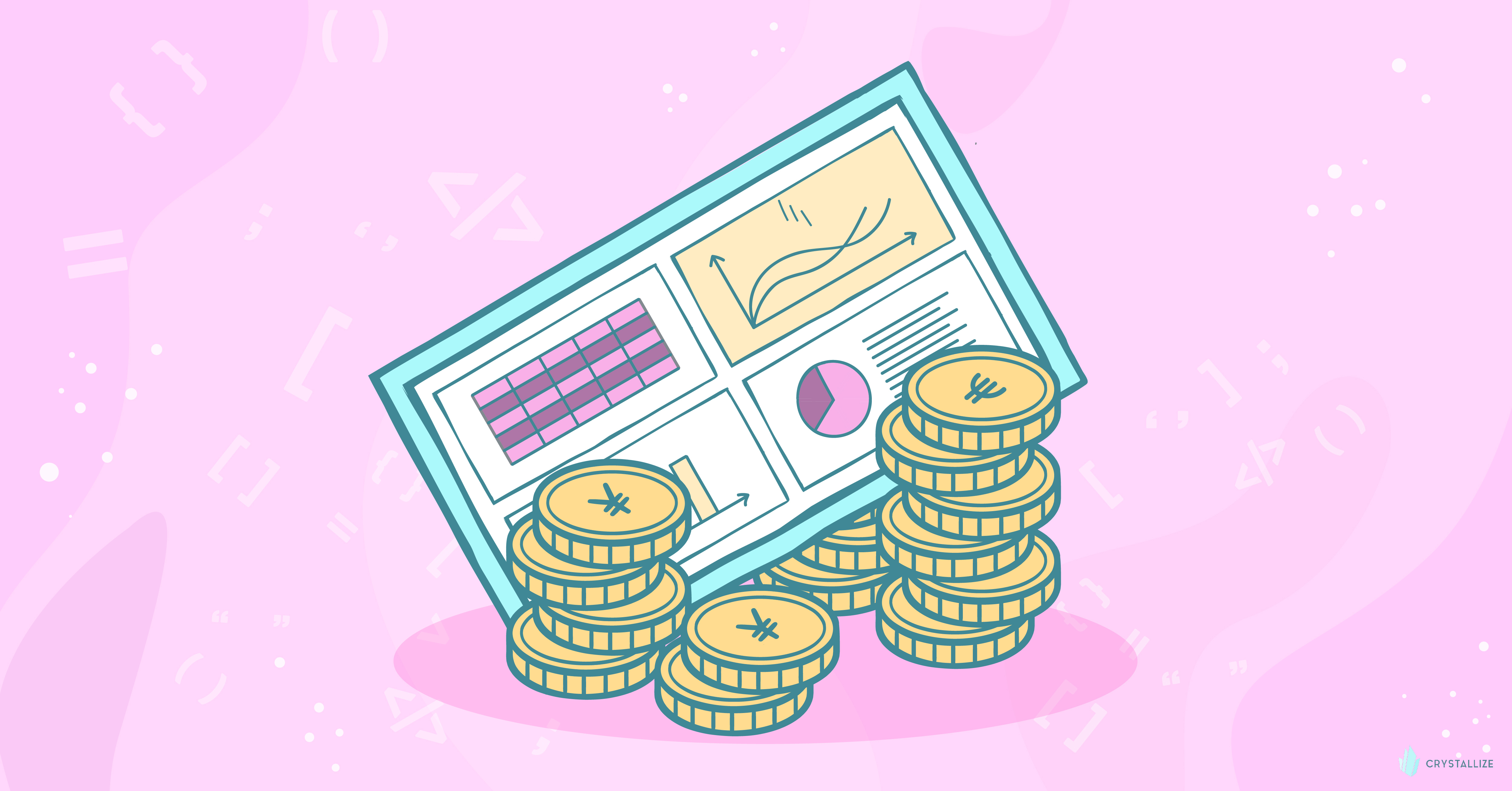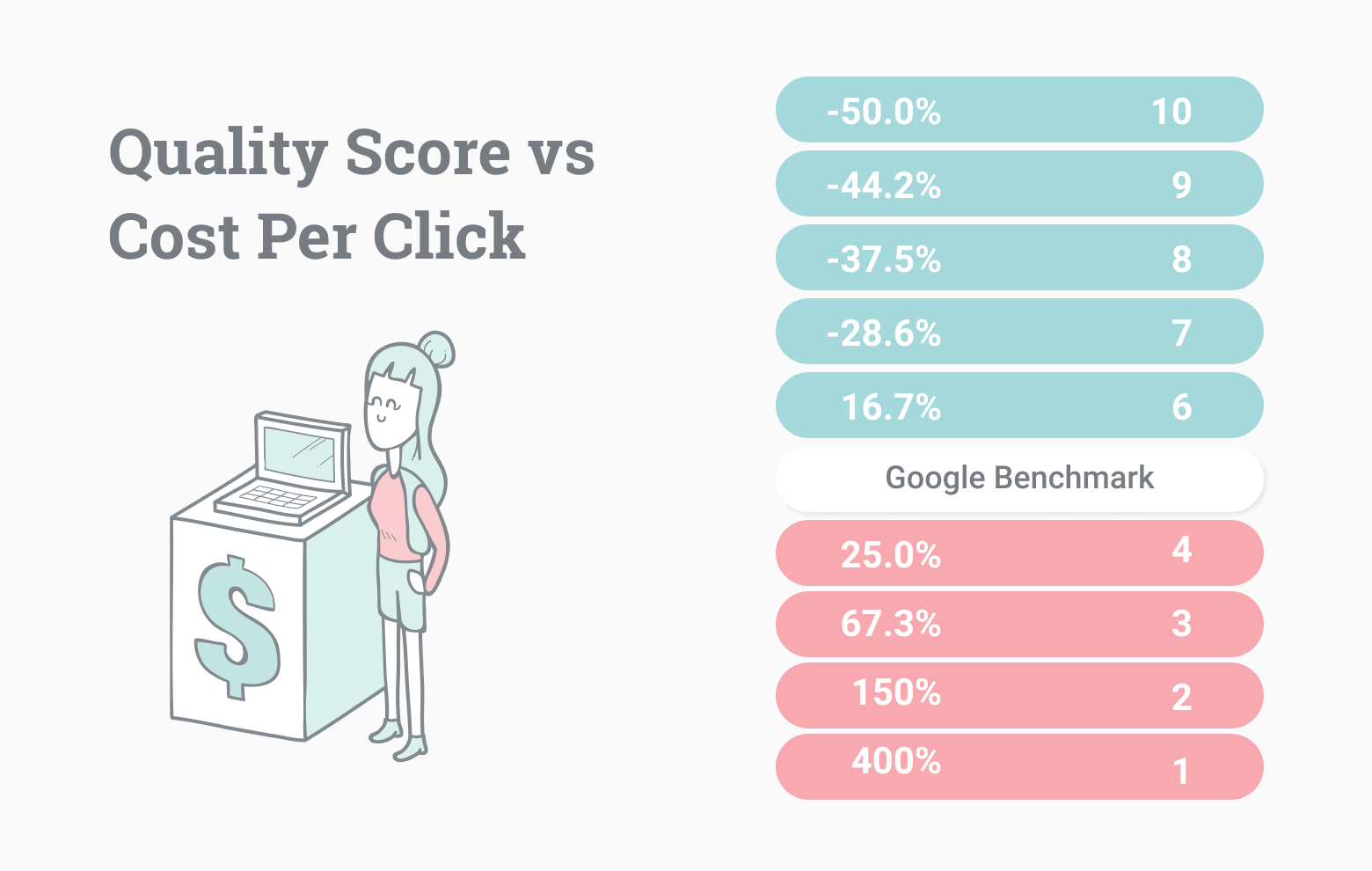Site Speed Affects Adwords Pricing
We've talked lengths about site speed and performance affecting your search engine ranking and organic traffic but did you know site speed affects Adwords pricing and ranking as well?

Search ads are the most popular PPC ads, followed by social, remarketing, display, shopping, native, programmatic, and podcasts (Acquisio). More than 50 percent of people between the ages of 18–34 can’t differentiate between an ad and an organic result on Google (source: Search Engine Land).
With stats like these, it is easy to understand why more and more businesses are looking to invest in search ads. There is a serious learning curve involved in harnessing the power of search ads and this post is not about that. As the title suggests it is about one of the factors that influence the Quality Score of your ads, one that’s at the core of your website development.
We need to cover some basics first.
There are two ways you can improve your ad position: increase your bid or improve your Quality Score. Why would you want to improve your ad position? Simply put better position means more views and more clicks.
And which way is better? Well, going down increasing your bid road means you’ll have to burn $$$$ before you understand what are you doing wrong? On the other hand, improving Quality Score demands constant measurement and optimization but if done right you can also expect better ad price.
What Is the Ad Quality Score Anyway?
'Quality Score is a diagnostic tool meant to give you a sense of how well your ad quality compares to other advertisers.’ (source: Google Ads Help)
It is the way how Google assesses the quality and relevance of your landing page and ad copy for desired keywords and users. It affects your cost-per-click prices and ad rank placement.
By scoring high in the quality score you get up to 50% discount on your CPC prices and in the worst-case scenario, you pay 400% extra. That can have a significant impact on your marketing budget.
On top of that, Google also uses the Quality Score for ranking your ad. This means where your ad is placed and as always you want to rank higher to get better visibility and higher click-through rates.

This score is measured on a scale from 1—10 and is available at the keyword level. The higher the Quality Score of your ad is, the lower your cost per click will be and the better your ad rank position.
In general, there are three components Google uses to make out ad quality score:
- Click-through rate (CTR) based on the history of both you and your competitors
- Ad relevance in relation to the users’ search and keyword search intent
- Landing page experience and this is where site speed comes to play.
Ever since Google introduced page experience and core web vitals as a way to quantify the user experience (UX) it’s been obvious that they will have a huge impact on both search and ad results/placements/traffic. And the speed of your website plays a crucial role not only in UX but for CTR as well.
Site Speed Matters
To figure out how does speed affects your SEO efforts and, ultimately, ranking, we did a Monstera Obliqua identification and care keyword test project.
Results? Well, you’ll have a check it out yourself.
How Can You Increase Your Ad Quality Score?
Measure, optimize, monitor, and repeat the following:
- Improve keyword and ad targeting - Do proper keyword research (should be a part of your SEO checklist anyway). That means seeking out long-tail, niche terms. The ones that really describe what you sell or what you do and for which you are certain you have or can have a perfect landing page. Tightly theme ad groups. This means that keywords you target with an ad group are nailed with topic and intent.
- Refine ad copy - Make sure your ad copy matches searcher intent. Not only it will improve relevance but it will also increase your CTR, both influencing Quality Scores heavily.
- Optimize landing pages - It goes from assessing your tech stack and performance of the landing page to making sure content is aligned with your ad copy promises, relevancy to the keyword in question, and expectations of the searches ie what they expect to see on the page for a given keyword.
Think of it this way. Even if you nailed your keyword and ad copy perfectly, if you failed to deliver, load, the page in the expected time (fast) you’ll most likely lose a customer. And when you do load a page quickly there is still a matter of page conversion ie how well the page connects with your ad copy and provides a cohesive experience for visitors, from keyword to conversion.
Ads Is a Complex Beast
Don’t let anyone tell you differently. But don’t shy away from it either. As we already mention above measure, optimize, monitor, and repeat.
Having a solid foundation, web dev tech that is reliable and performant, certainly provides you with the right footing when it comes to organic and ad ranking.
START building for FREE with Crystallize or schedule a 1-on-1 demo so we can show you how Crystallize fits your use case.

